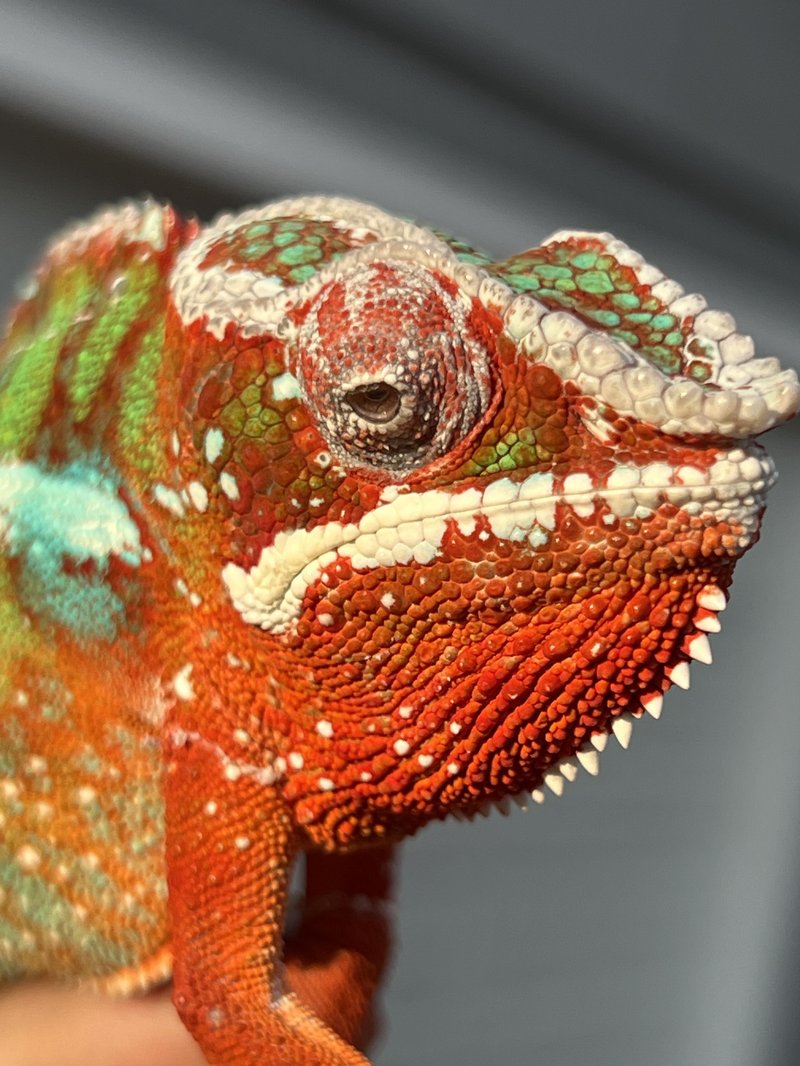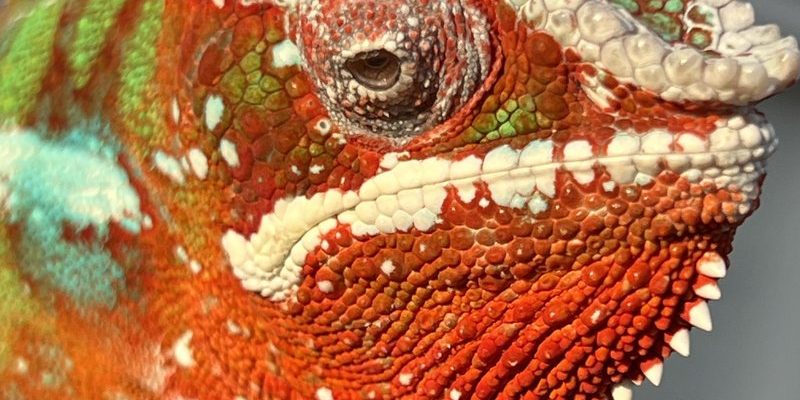
Think of it this way: you wouldn’t just jump into a pool without knowing how to swim, right? The same goes for caring for a Panther Chameleon. Understanding their health can help you spot problems early and keep your scaly friend thriving. So, let’s dive into the world of chameleon health and explore some of the most frequent issues they face, how to spot them, and how to care for your chameleon in the best way possible.
Understanding the Basic Needs of Panther Chameleons
Before we tackle specific health issues, it’s essential to understand what makes Panther Chameleons tick. These creatures come from the lush forests of Madagascar, where they enjoy warm temperatures, high humidity, and a diverse diet. Their habitats are often a mix of trees and foliage that provide both cover and sunlight.
Here’s the thing: if you want your chameleon to be healthy, you need to recreate these conditions as best you can in captivity. This means providing a spacious enclosure with plenty of climbing branches, UVB lighting for their skin, and a temperature gradient to help them regulate their body heat. The right humidity levels are vital too—around 50% to 70%—and misting the enclosure regularly helps achieve that.
While it might seem simple, failure to meet these basic needs can lead to serious health problems. When they’re stressed from poor living conditions, their immune system weakens, making them more susceptible to illness. This is why providing a proper environment is the first step in preventing health issues.
Dehydration: A Hidden Danger
Dehydration is one of the most common health issues that Panther Chameleons face. These reptiles can’t drink water directly from a bowl like some other pets. Instead, they rely on droplets of water from misting or the leaves in their habitat. If they don’t get enough moisture, they can quickly become dehydrated.
Signs of dehydration include sunken eyes, lethargy, and dry skin. You might be wondering how to check if your chameleon is dehydrated. One method is to gently pinch the skin on their back. If it doesn’t quickly return to its original position, that’s a telltale sign of dehydration.
To prevent this, ensure you’re misting your chameleon’s enclosure regularly, at least once or twice a day. You can also add a small dripper system that allows water to trickle onto branches in the tank. It’s like creating a little rain forest for them!
Respiratory Issues: Breathing Problems
Respiratory issues are another common concern for Panther Chameleons. These problems often stem from stress, incorrect humidity, or temperature fluctuations. You might notice signs like wheezing, coughing, or even mucus around the nostrils. If you hear your chameleon making strange noises, it’s time to take action.
The environment plays a huge role in preventing these issues. Here’s a tip: make sure the humidity in your chameleon’s habitat isn’t too high or too low. The ideal range is about 50% to 70%. If it’s too dry, your chameleon might struggle to breathe properly. Conversely, if it’s too humid, mold can develop, which can also cause respiratory problems.
If you suspect your chameleon has a respiratory issue, consult with a vet who specializes in reptiles. They can provide medication and guidance on improving your chameleon’s environment for better air quality.
Parasites: Unwanted Guests
Parasites can be a serious issue for Panther Chameleons, even if you can’t always see them. These pests can come from various sources, including live insects or contaminated environments. Common parasites include mites, ticks, and worms. They can cause a range of health problems, from weight loss to infections.
Signs of a parasitic infection can vary. You might see your chameleon scratching excessively, losing weight, or exhibiting unusual behaviors. If you notice any of these symptoms, don’t delay—take your chameleon to the vet for testing.
Prevention is key here. When feeding live insects, ensure they’re from a reputable source. Regularly clean and disinfect your chameleon’s enclosure to eliminate potential contaminants. Keeping your chameleon healthy and parasite-free is all about maintaining a clean environment.
Nutritional Deficiencies: Feeding Right
A proper diet is critical for the health of any Panther Chameleon. They thrive on a varied diet, primarily consisting of insects like crickets, roaches, and worms. But here’s where it gets tricky: if they aren’t getting the right nutrients, they can develop health problems.
Calcium and vitamin deficiencies frequently appear in chameleons that are not given appropriate dietary supplements. Signs include lethargy, swelling, and in severe cases, metabolic bone disease. So what can you do? Make sure you dust their food with calcium and vitamin D3 supplement before feeding. Also, rotate the types of insects you offer to ensure a well-rounded diet.
Think of it like this: just as you wouldn’t survive on junk food alone, your chameleon needs a variety of healthy options to stay fit and vibrant. This balance can help prevent nutritional deficiencies and keep your pet feeling great.
Stress: A Silent Threat
Stress is often overlooked but can be a silent killer for Panther Chameleons. These creatures are naturally solitary and can easily become stressed from over-handling, improper habitat conditions, or even loud noises. Stress can lead to a weakened immune system, making them more susceptible to disease.
Signs of stress include hiding more than usual, loss of appetite, or even aggressive behavior. To help your chameleon feel more secure, provide plenty of hiding spots in their enclosure. Live plants, branches, and decorative items can create a cozy environment.
Also, limit handling to only when necessary. Treat your chameleon with respect and allow them to come to you on their terms. It’s like giving them a safe space to relax and recharge.
Taking care of a Panther Chameleon is a rewarding journey, but it comes with its challenges. By being aware of common health issues—like dehydration, respiratory problems, parasites, nutritional deficiencies, and stress—you can take proactive steps to keep your chameleon happy and healthy.
Remember, the key is to provide the right environment, diet, and care. Regular check-ups with a vet who understands reptiles can also make a difference. Think of it as regular maintenance for a beloved car; it keeps everything running smoothly.
So, as you embark on this adventure of chameleon ownership, keep your eyes peeled for any signs of trouble. After all, your vibrant little friend depends on you to provide the best care possible!

